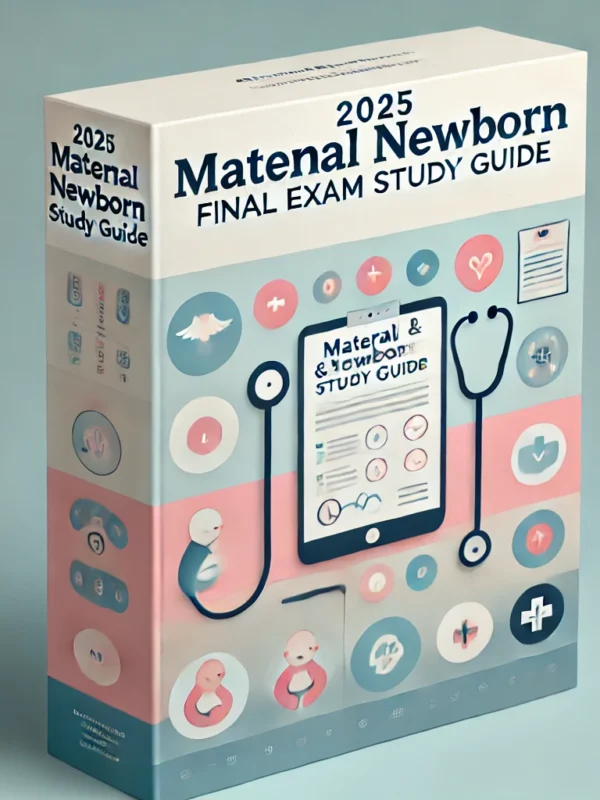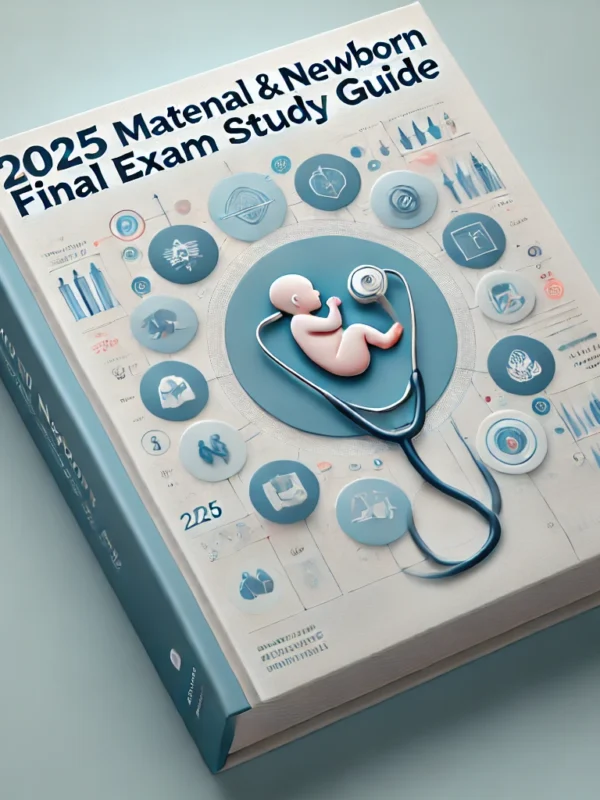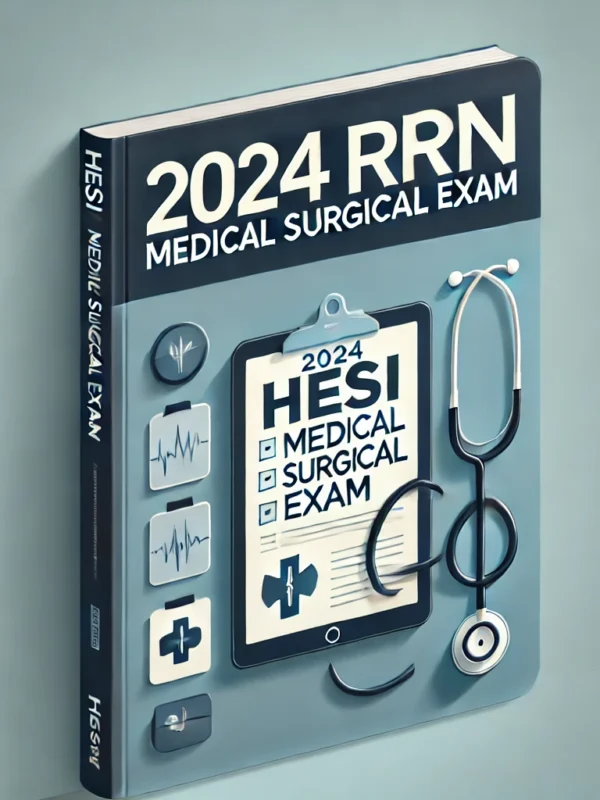Elevate your preparation for advanced nursing studies with the NURS 611 Pathophysiology Exam 3 – Maryville University 2024: Comprehensive Practice Questions with Verified Answers for Guaranteed Success. This expertly designed study resource is tailored for graduate nursing students at Maryville University enrolled in NURS 611 (Advanced Pathophysiology), focusing specifically on Exam 3. It offers a robust collection of comprehensive practice questions that cover advanced pathophysiology topics, including the pathophysiology of the gastrointestinal system, hepatic disorders, neurological dysfunction, musculoskeletal disorders, reproductive system pathophysiology, and acid-base imbalances. Each question is paired with verified answers and detailed rationales, providing in-depth explanations of disease mechanisms, clinical manifestations, and their relevance to advanced nursing practice. The NURS 611 Exam 3 at Maryville University typically consists of 50–100 questions in formats such as multiple-choice, case studies, and clinical application scenarios, and this study guide mirrors that structure to ensure an authentic practice experience. Aligned with Maryville University’s 2024 curriculum, this resource incorporates the latest pathophysiology concepts and clinical guidelines, making it a reliable tool for mastering complex material. Verified by high-achieving Maryville nursing students, this guide guarantees success by offering a structured, thorough approach to preparation, helping you excel in NURS 611 and advance your journey toward becoming a nurse practitioner, educator, or healthcare leader.
Preview
Which form of diabetic insipidus (DI) will result if the target cells for antidiuretic hormone (ADH)
in the renal collecting tubules demonstrate insensitivity?
a.
Neurogenic
c.
Psychogenic
b.
Nephrogenic
d.
Ischemic – CORRECT ANS–B
Only nephrogenic DI is associated with an insensitivity of the renal collecting tubules to ADH.
Which laboratory value is consistently low in a patient with diabetes insipidus (DI)?
a.
Urine-specific gravity
c.
Urine protein
b.
Serum sodium
d.
Serum total protein – CORRECT ANS–A
The basic criteria for diagnosing DI include a low urine-specific gravity while sodium levels are
high. Protein levels are not considered.
in the renal collecting tubules demonstrate insensitivity?
a.
Neurogenic
c.
Psychogenic
b.
Nephrogenic
d.
Ischemic – CORRECT ANS–B
Only nephrogenic DI is associated with an insensitivity of the renal collecting tubules to ADH.
Which laboratory value is consistently low in a patient with diabetes insipidus (DI)?
a.
Urine-specific gravity
c.
Urine protein
b.
Serum sodium
d.
Serum total protein – CORRECT ANS–A
The basic criteria for diagnosing DI include a low urine-specific gravity while sodium levels are
high. Protein levels are not considered.










Reviews
There are no reviews yet.